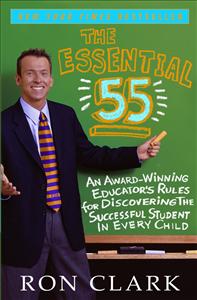Manners, Discipline, Respect Part II
To continue with Ron Clark's rules, here are some others I thought were important:
Rule #13: Follow along when we read together. This is a difficult one to mandate. Many students don't read along; others are good at pretending to read along! I like Clark's suggestion that a student needs to know exactly what place you are at and to call on students randomly to read. The most important thing is to develop an enjoyment for reading in the students.
Rule #14: Answer all written questions with a complete sentence. To this rule I would add when speaking also. This rule is especially valuable for ELL students.
Rule #15: Do not ask for a reward. The fact of the matter is that kids like rewards, but they must also learn that a good education is the true award. When students ask for rewards, they come across as greedy and a little obnoxious and rude. Yet, it is very natural for them to ask so this is something that definitely needs to be cultivated and taught.
Rule #16: You must complete your homework everyday. I really like this one. As high school teachers a lot of times we give up on getting homework from students. Admittedly I have a high percentage return on homework which I attribute to the routinization of the homework, but it's always the same students who don't do their homework. I'm going to try the suggestion of Clark to give a group incentive for the highest # of days of the entire class bringing in their homework and make it a competition between 2/3 and 4/5 periods.
Rule #17: Transitions will be swift, quiet, and orderly. My main concern is that the transitions are swift. This is a timely rule as I am trying to work this out with my 4/5 period class who transition a lot during the period. I am using a timer with sound effects that I think is going to work well with group deductions for those who don't make the time limit.
Rule #21: Follow specific classroom protocols. Two protocols that I want to incorporate. Don't shout out answers and raise your hand if you need help. I want to get good at asking specific students when I pose questions that way everyone will know they need to pay attention and contribute instead of just a few students dominating the discussion. Also I want to work on noise level when students are working in groups.
The last seven rules are important and are something that need to be cultivated throughout life:
Rule #49: Stand up for what you believe in.
Rule #50: Be positive and enjoy life.
Rule #51: Live so that you will never have regrets.
Rule #52: Learn from your mistakes and move on.
Rule #53: No matter the circumstances, always be honest.
Rule #54: Carpe Diem
Rule #55: Be the best person you can be


